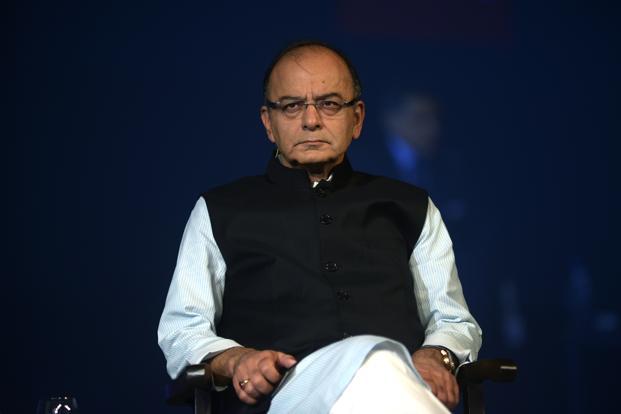GST council clears model tax law, but some hurdles remain
Live mint
By Asit Ranjan Mishra
Thu, Dec 22 2016. 10 18 PM IST
The GST council meeting will on Friday discuss the contentitous issue of dual control of assessees under the centre and states.

Finance minister Arun Jaitley. The GST implementation will see centre and states exercising dual control for levying tax on a common tax base. Photo: Abhijit Bhatlekar/Mint
New Delhi: In a significant breakthrough that augurs well for the implementation of the goods and services tax (GST), both states and the centre cleared the model GST law on Thursday in the seventh GST council meeting chaired by finance minister Arun Jaitley.
All eyes will now be on the more contentious issue of cross-empowerment to scrutinize assesses to be taken up on Friday.
A lack of consensus on the issue would make it impossible for the government to implement the ambitious indirect tax reform from its target date of 1 April 2017.
Friday’s meeting will be crucial as the GST council would discuss the integrated GST Bill under which it will take up the matter regarding dual control of assessees, a government official said, requesting anonymity.
In the GST model followed by India, it would be a dual GST with the centre and states simultaneously levying tax on a common tax base. The GST to be levied by the centre on intra-state supply of goods and services would be called the central GST (CGST) and that to be levied by the states would be called the state GST (SGST). Similarly the integrated GST (IGST) will be levied and administered by centre on every inter-state supply of goods and services. The central GST will be framed based on the model GST law.
The central GST and the state GST would be levied simultaneously on every transaction of supply of goods and services except for exempted goods and services.
M.S. Mani, senior director, Deloitte Haskins and Sells LLP said the fact that the CGST bill was taken up and approved signals the Union government wants to move ahead, close easier issues and then move to more difficult issues like dual control.
“Tomorrow’s meeting is expected to provide more definitive guidance on the way forward on GST,” Mani said.
Some states like West Bengal, Kerala and Tamil Nadu are also demanding exclusive control over all traders who have an annual revenue threshold of less than Rs1.5 crore, the centre is unwilling to concede, saying it will leave a very small pool of traders under its control. The central government instead favours dividing traders in a fixed proportion between the centre and the states, irrespective of threshold.
Another option being considered is only dividing those traders who are likely to be audited in a GST regime.
At the heart of the problem is the fact that state governments have around 250,000-300,000 employees and the centre another 50,000 indirect tax officials who may be rendered workless if either party hands over exclusive control to the other.
The centre has recently shown some flexibility. Finance minister Arun Jaitley last week said the matter of how the responsibility of scrutinizing assessees is shared between the states and the centre is a “small issue”.
The finance minister, however, reiterated that the centre and states don’t have the luxury of time and that GST has to be implemented by 16 September 2017, as constitutionally mandated. “Since GST is a transactional tax, its implementation can start at any time of the year. The earlier we do it, the better,” Jaitley said.